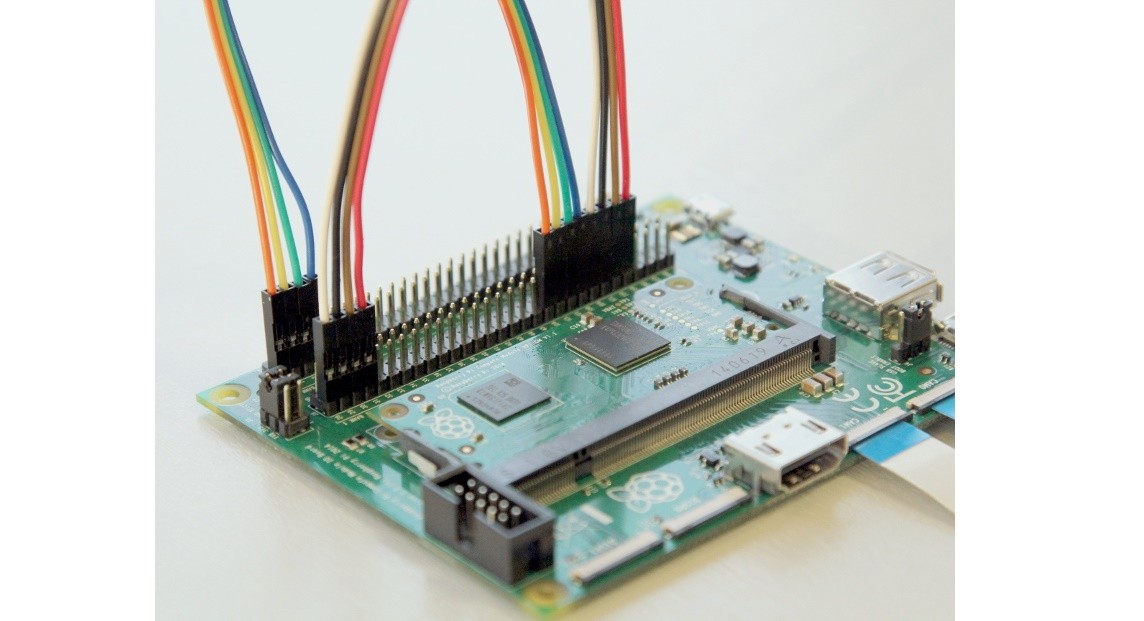Raspberry Pi setup
Already done, if you wish to run a demo, skip to the next chapter
SD card preparation:
- Use Raspberry Pi Imager to flash the SD card with Raspberry Pi Buster OS (Do not use Bullseye OS)
- Within Raspberry, Pi Imager enable SSH, Wifi
- Raspberry pi user/pass: pi/test
OS preparation:
- Optional: use a USB hub to connect the wireless dongle, keyboard, and mouse to Raspberry Pi
- Connect display over an HDMI cable
- Make sure Raspberry pi is connected to the network
- Open terminal (SSH or on Desktop) and update OS:
sudo apt updatesudo apt full-upgrade - And reboot
sudo reboot - Power off Raspberry Pi
- Wire control signals on the IO board like in the diagram below:
- Connect to the Raspberry Pi terminal
- Run command
sudo raspi-config - Select menu Interface options / Camera and select ENABLE
- Do not restart when asked, exit configuration program
- Update blob configuration
sudo wget https://datasheets.raspberrypi.com/cmio/dt-blob-dualcam.bin -O /boot/dt-blob.bin - Now reboot with a command
sudo reboot - After Raspberry has rebooted, connect to the console and check if the camera is detected
vcgencmd get_camera - In order to test the video, run command
raspivid -f -k -awb greyworld -mm average -t 0 - For more convenient behavior, add this command to
/etc/rc.local- camera will start video on HDMI port right after reboot

